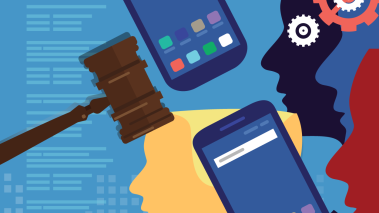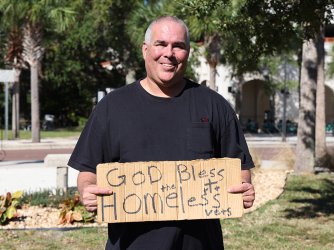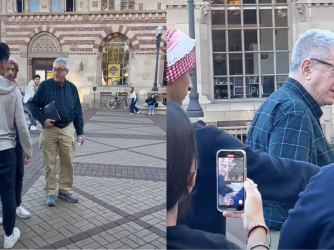Table of Contents
Does the First Amendment allow public officials to ‘block’ their critics online? The Supreme Court will soon decide.

Imagine standing up to speak at a city council meeting only to be told by the mayor, “Sorry, I’ve blocked you. Please sit down.”
That would be absurd. But it’s exactly how politicians around the country are using their social media accounts. Many elected officials use social media to solicit feedback, post announcements, and otherwise carry on official business. Too often, however, they also use it to silence their critics.
Silencing critics would be plainly unconstitutional at a city council meeting. Is it different online?
Tomorrow, the Supreme Court will hear arguments in two cases on this question: Does the First Amendment let public officials silence or block their critics on social media? FIRE filed amicus curiae — “friend-of-the-court” — briefs in both cases, urging the Court to answer “No.” Politicians cannot use their social media account as a public forum and then block their critics from that forum. That’s not how it works in real life, and it shouldn’t be how it works on social media.
Politicians cannot use their social media account as a public forum and then block their critics from that forum. That’s not how it works in real life, and it shouldn’t be how it works on social media.
The first case, O’Connor-Ratcliff v. Garnier, involves school board trustees who used their personal Facebook and Twitter accounts to solicit feedback from constituents, invite the public to board meetings, and answer questions. But when the trustees got tired of two concerned parents’ probing commentary, the trustees blocked the parents.
In an attempt to justify their censorship, the trustees argued they were acting as private citizens, not as government officials. These were just personal accounts, they claimed. But the U.S. Court of Appeals for the Ninth Circuit, like most courts judging similar cases, didn’t buy this argument. Instead, it correctly examined the content and appearance of their pages and determined the trustees had “clothed their pages in the authority of their offices and used their pages to communicate their official duties.”
The second case, Lindke v. Freed, diverged from that commonsense rule. There, a city manager used his Facebook page to conduct official business but blocked a critic whose comments he disliked. The U.S. Court of Appeals for the Sixth Circuit departed from other courts that have considered similar cases, holding that the city manager’s censorship did not violate the First Amendment. It’s his personal page, the court said, and “presenting himself as city manager” and “talking about his job” isn’t enough “to transform a personal page into an official one.”
So which is it? Do public officials have to listen to their critics if they open their social media accounts for official business? Or can they silence their opponents, so long as they label their social media accounts as “personal”?
Well, if it looks like a duck, swims like a duck, and quacks like a duck, it’s probably a duck. FIRE’s briefs argue as much, asserting that if public officials use social media to conduct official business, they should not be able to duck their First Amendment obligations. And once officials use the accounts for official business, the First Amendment prohibits them from discriminating against opposing views.
Political officeholders often recognize and embrace the power of social media. From mayors to district attorneys, congressional representatives to police chiefs, public officials from America’s smallest towns and largest cities alike use social media to connect with citizens. Many officials — including President Joe Biden and former President Donald Trump — continued to use their personal social media accounts to communicate with the public while in office. And those ostensibly “personal” accounts often have many more followers than their formal, government-operated counterparts.
Government officials can’t have it both ways: Officeholders who opt to use their social media accounts as tools of governance forfeit the right to cancel critics or delete unfavorable comments. Public officials can’t “mute” protests with which they disagree, nor can they “block” a public commenter’s criticism. On social media, it should be no different.
After tomorrow’s arguments, it will be up to the Supreme Court to settle this question.
Recent Articles
FIRE’s award-winning Newsdesk covers the free speech news you need to stay informed.


FIRE Statement: X Corp's lawsuit and Texas's investigation into Media Matters for America are deeply misguided

Anonymous speech is as American as apple pie
